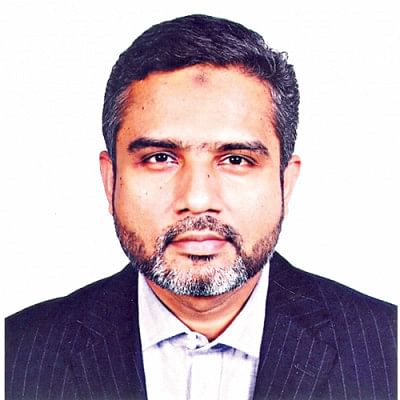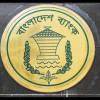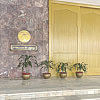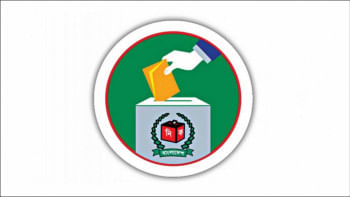Islamic banking poised to expand

Islamic banking is set to grow from the current level in Bangladesh, which will offer a huge opportunity to banks and financial institutions and accelerate financial inclusion, said Sabbir Ahmed, head of retail banking of Standard Chartered Bangladesh.
At present, the Islamic banking segment constitutes 28 per cent of the market. But Bangladesh is home to the world's fourth largest Muslim population, meaning that the scope to develop Islamic banking is huge.
"This number is poised to grow," said Ahmed during an interview with The Daily Star.
About half of the people in Bangladesh are unbanked.
And Ahmed said because of how it is structured, the growth of Islamic banking will help deliver financial services to traditionally underbanked communities and sectors.
"This is the case as Islamic banking emphasises the buyer-and-seller relationship and risk-sharing model between banks and customers, making it more accessible to those who are economically insecure. This makes Islamic banking more appealing to all customers – not just those who are religious."
"Islamic banking is by no means a small or niche sector."
He said the demand for Islamic banking products and options is only set to grow as confidence in the sector increases and it becomes more available and popular.
"Moody's Investors Service also forecasts a growth of more than 25 per cent in Islamic banking penetration across the country, which will undoubtedly be backed by strong government support due to the high demand."
In 2004, Saadiq, Standard Chartered's Islamic banking window, was launched in Bangladesh. It was the first to introduce an Islamic credit card in the country three years later.
Today, it offers a wide range of shariah-compliant retail products. Customers can open a current account, savings account, or sadaqah account. Mudaraba-based deposit accounts designed especially for tertiary-level students and for Hajj or Umrah attendees are also available.
Clients can avail of shariah-compliant personal financing, auto financing, and home financing. The bank has a number of tailored product offerings designed to meet the needs of corporate clients.
"Since 2004, we have innovated and worked to create a number of shariah-compliant solutions to meet the immediate and future needs of our clients," said Ahmed.
He also thinks that SCB's current product suite and offerings are poised to grow and develop in the coming years, especially given that global and local demand for Islamic finance is projected to accelerate rapidly.
"As the industry grows, our goal is to exceed the expectations of our customers."
As an Islamic banking proposition, Saadiq isn't just working to be the best amongst Islamic banks.
"We are working to bring solutions to the table that appeal to all clients. We aim to pioneer global best practices and our goal is to offer Islamic banking solutions which have been vetted, approved, and maintained by world-renowned shariah scholars."
Earlier this year, Saadiq was named the "Best Islamic Bank for Digital Customer Experience" by the Digital Banker, a Dubai-based news, business intelligence and research firm, for the fourth time running.
"This achievement is another sign that our digital journey is headed in the right direction," said Ahmed, who obtained his MBA from the Institute of Business Administration under the University of Dhaka.
Islamic banks currently invest their excess liquidity in the Bangladesh Government Islami Investment Bonds. And the banker thinks a broader basket of Islamic finance assets would ensure optimum profits for clients.
Developing a shariah-compliant share market and establishing a secondary market to trade sukuk, shariah-compliant shares, are essential, he said.
"There has to be a vested interest in lifting up opportunities to launch and implement green sukuk, as part of creating an investment environment that is greener and geared towards long-term sustainability."
The banker recommended the central bank boost the adoption of Islamic banking by offering a lower stamp duty for Islamic products.
"The Bangladesh Bank should also permit borrowing from conventional current accounts to finance Islamic assets for Islamic banking windows and branches."

 For all latest news, follow The Daily Star's Google News channel.
For all latest news, follow The Daily Star's Google News channel. 








Comments